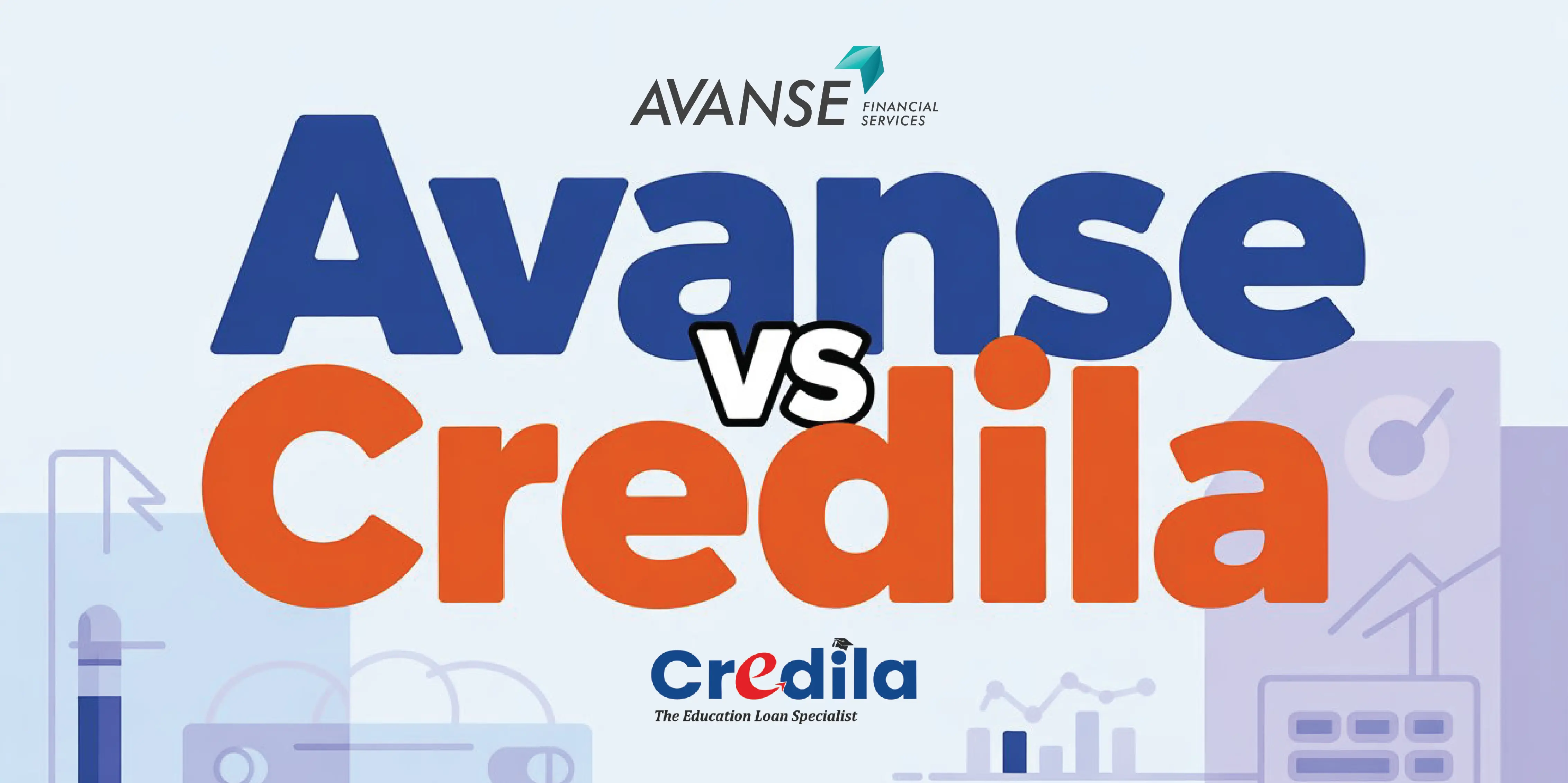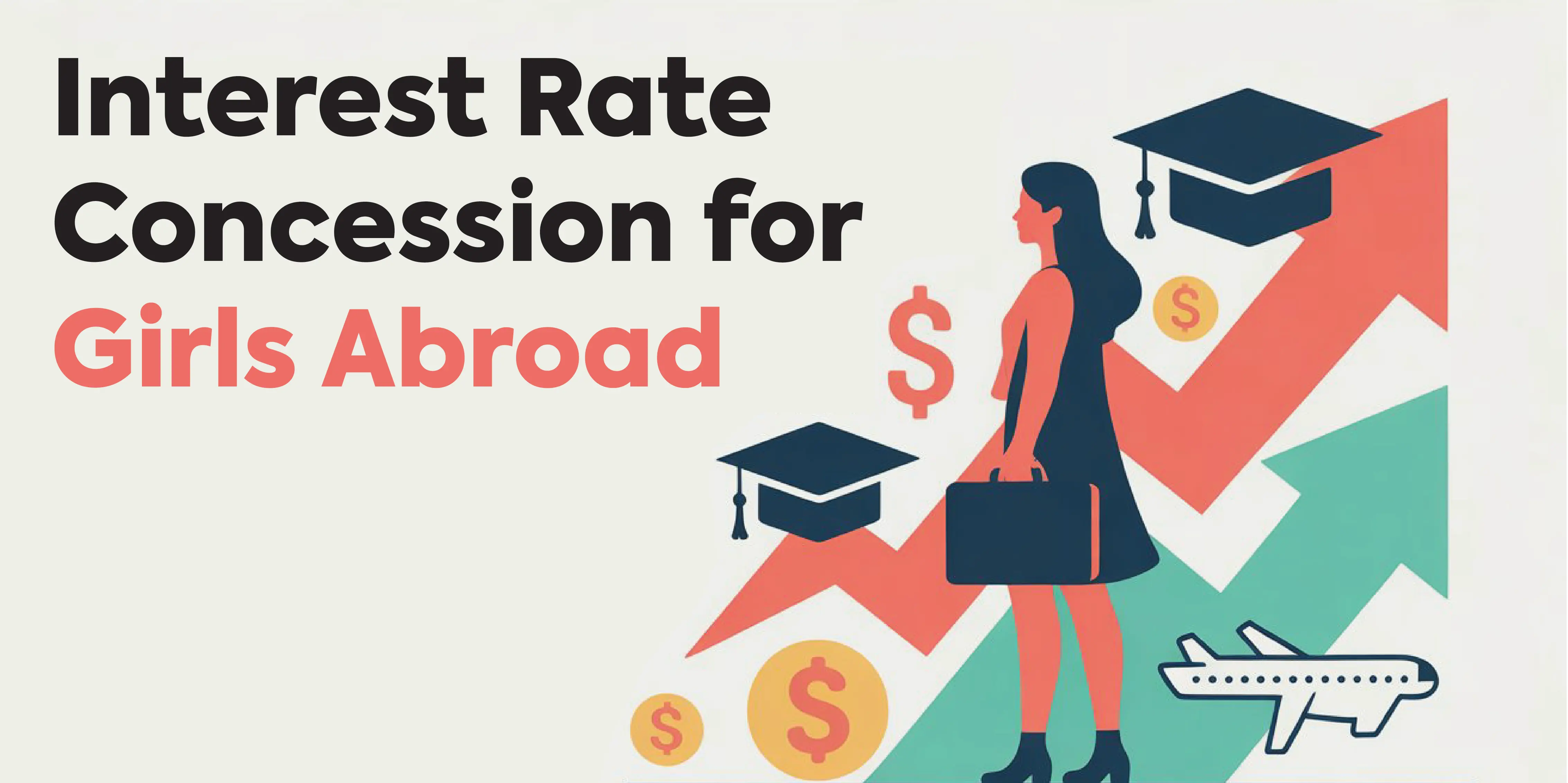https://www.wemakescholars.com/blog/fixed-interest-rates-on-education-loans-pros-and-cons
Fixed Interest Rates on Education Loans: Benefits, Drawbacks, and Lenders Offering Them
Abroad Education Loan | Updated on ()

Education loans have become the primary source of funds for pursuing higher education for many students. The interest rate of most education loans is floating, which means it doesn’t remain constant and changes according to the market conditions. This makes it a major concern for many students as it directly impacts their repayment cost.
This is why many students look for education loans with fixed interest rates, where the interest remains the same throughout the loan duration. However, fixed interest rates come with certain pros and cons that students should understand before choosing them.
This article provides detailed information about what fixed interest rates are and how they work. We have also covered the pros and cons of education loans with fixed interest rates, along with the information of lenders offering them.
What is a Fixed Interest Rate for Education Loans?
As the name suggests, a fixed interest rate on education loans is an interest option where the education interest rate remains constant for the entire loan period. This means that the interest rate of an education loan with a fixed rate does not change throughout the tenure. The interest rate will not be affected by the volatile market conditions, such as fluctuations in the currency exchange rate and inflation.
As the interest rate remains constant, the repayments of the student loan will also be fixed during the entire repayment period. This makes fixed interest rates an attractive option for many students. Many banks in India offer education loans with fixed interest rates. Let’s look at how fixed interest rates differ from floating interest rates.
Fixed Interest vs Floating Interest Rates for Education Loans
- Floating Interest rates: The interest rate of an education loan with floating rates doesn’t remain constant and changes according to market conditions. It is influenced by inflation, currency exchange rates, and the repo rate. This means that the EMIs of the loan also change according to the market conditions.
- Fixed Interest rates: On the other hand, the interest rate of an education loan with fixed rates remains constant for the entire loan duration. It is not affected by changes in the market conditions, such as exchange rates, inflation, and repo rate. Since the interest rate remains constant for the entire repayment period, the EMIs will also be fixed.
Now, let’s look at how a fixed interest rate on education loans works with an example.
How do Fixed Interest Rate Student Loans Work?
Here’s an example to help you understand how fixed-rate education loans work.
Example: Suppose a student took an education loan of ₹25,00,000 with a repayment period of 12 years, including the moratorium period of 2 years. This means that the student has to repay the loan for 10 years after the moratorium period.
Case 1: The student opted for a floating interest rate of 10%:
- The student is supposed to get an EMI of around ₹ 33,000 according to the interest rate and principal loan amount.
- However, the interest rate has increased to 12% by the end of the moratorium period due to changes in the market conditions.
- This increases the monthly EMI amount to around ₹35,800, increasing the financial burden.
Case 2: The student opted for a fixed interest rate of 10%:
- After completing the moratorium period, the student will get an EMI of around ₹ 33,000.
- This EMI amount will remain the same for the entire repayment period and will not be affected by market conditions, unlike education loans with floating interest rates.
Now, let’s look at the benefits and disadvantages of a fixed interest rate for education loans.
Benefits of Fixed Interest Rates on Education Loans
The following are several benefits of choosing a fixed interest rate for your education loan.
- Fixed Repayments: The student loan repayments, i.e., the EMIs of the loan, are made up of the principal loan amount and the interest. And as we have discussed, the interest rate on education loans with fixed rates remains constant for the entire loan duration. This means that the repayments of the education loan will also remain the same throughout the repayment period.
- Easier Repayment Planning: Choosing fixed interest rates on education loans offers fixed repayments. This helps students get predictable EMIs and ultimately makes the repayment planning easy.
- Not Affected by Inflation: Inflation is one of the major factors affecting education loan interest rates, particularly floating interest rates. However, when you choose a fixed interest rate on your education loan, the interest rate will not be affected due to inflation.
- Not Affected by Exchange Rates: Fluctuations in the currency exchange rates significantly impact student loan repayments by affecting the interest payments of the loan. However, the repayments of an education loan with fixed interest rates will not be affected by fluctuations in exchange rates, providing financial stability to students.
Disadvantages of Fixed Interest Rate on Education Loans
Although fixed interest rates on education loans have several advantages, they also come with certain disadvantages, which are listed below.
- Higher Rates: This is one of the major disadvantages of education loans with fixed interest rates. Lenders tend to have higher interest rates for fixed rates compared to floating rates.
- No benefit from Market Changes: As we discussed, fixed interest rates will not be affected by changes in the market conditions, such as inflation and exchange rates. However, students with fixed interest rate education loans also miss out on the opportunity to reduce their interest rate when the market conditions lower the rates.
Students often struggle to negotiate the interest rate on their education loan. WeMakeScholars, an organization partnered with over 15 public and private lenders, can help you in such situations. When you apply for a student loan through us, our team of experienced financial officers can negotiate the interest rate on education loans to help you get low rates. Request a callback today so that our team can help you get the best terms on your education loan.
Lenders offering a Fixed Interest Rate for Education Loans
Many banks in India provide education loans with fixed interest rates. The prominent banks offering fixed interest rates on education loans include.
Obtaining an education loan to fund your studies can be quite challenging, with different lenders offering varying options. Contact WeMakeScholars, an organisation funded and supported by the Ministry of IT. When you apply for an education loan through us, our experienced team will help you find the most suitable loan for your higher studies, according to your eligibility. Request a callback today to contact our team.
Conclusion
A fixed interest rate on an education loan is like a double-edged sword that comes with its advantages and disadvantages. The interest rate of education loans with fixed rates remains constant for the entire repayment period. It will not be affected by the change in market conditions, making it an attractive option among students.
However, they often come with higher rates than floating interest rates. Students should carefully understand its pros and cons before opting for a fixed interest rate on their education loans.





Kindly login to comment and ask your questions about Scholarships & Education Loans